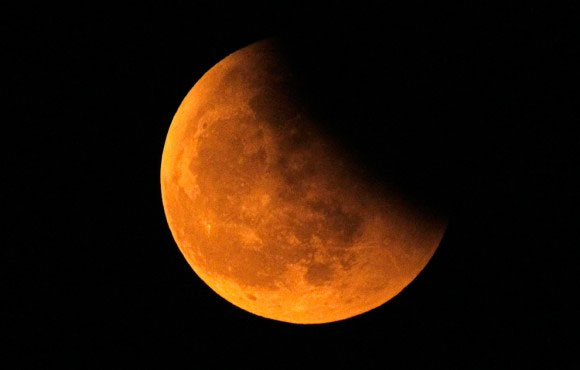Solar eclipse can change the weather
Wind blows more slowly and changes direction every time an eclipse occurs, a study shows.
Real eclipse happens when the moon, the sun and the earth line up with the moon in the middle. The shadow of the moon glides on the surface of the globe during the eclipse.
Meteorologists have found that the temperature in the dark areas that the moon produces can be reduced by up to 3 degrees Celsius.

"In 1901, a man named H. Helm Clayton guessed that the wind changed direction when an eclipse occurred," said Giles Harrison, a researcher at the University of Reading in England.
Many scientists later confirmed that the wind changed direction and blew slower when the eclipse occurred, but no one was able to provide data to prove it.
To prove the hypothesis of Clayton, Harrison and Suzanne Gray, an atmospheric researcher at the school, collect weather data in areas where the shadow of the moon swept during an eclipse in 1999, National Geographic reported .
The results show that the speed of the winds in the area is covered by the shadow of the moon down to 2.5 km / h. In addition, the wind direction is also turned south about 20 degrees.
"When the temperature falls because of an eclipse, it seems that the speed and direction of the wind also changes," Harrison commented.
Gray and Harrison stressed that their research is a perfect opportunity to test the accuracy of today's weather forecasting technologies.
"It's great because you can get extremely detailed weather data with advanced forecasting devices , " the two researchers said.
- Tomorrow Vietnam will receive a solar eclipse
- Vietnam did not observe the first solar eclipse of the year
- Video: The coronary eclipse recommended in Australia
- When is the next solar eclipse in Vietnam?
- Where is the best eclipse on March 9 in Vietnam?
- Clouds change color because of solar eclipse
- Reality and myths about solar eclipses
- Partial eclipse across North America
- Rare real Japanese swept across 3 continents
- Catch a partial solar eclipse on October 24
- A guide to observing the solar eclipse of the day on May 21
- Extremely rare eclipses happen this afternoon
 Van Allen's belt and evidence that the Apollo 11 mission to the Moon was myth
Van Allen's belt and evidence that the Apollo 11 mission to the Moon was myth The levels of civilization in the universe (Kardashev scale)
The levels of civilization in the universe (Kardashev scale) Today Mars, the sun and the Earth are aligned
Today Mars, the sun and the Earth are aligned The Amazon owner announced a secret plan to build a space base for thousands of people
The Amazon owner announced a secret plan to build a space base for thousands of people